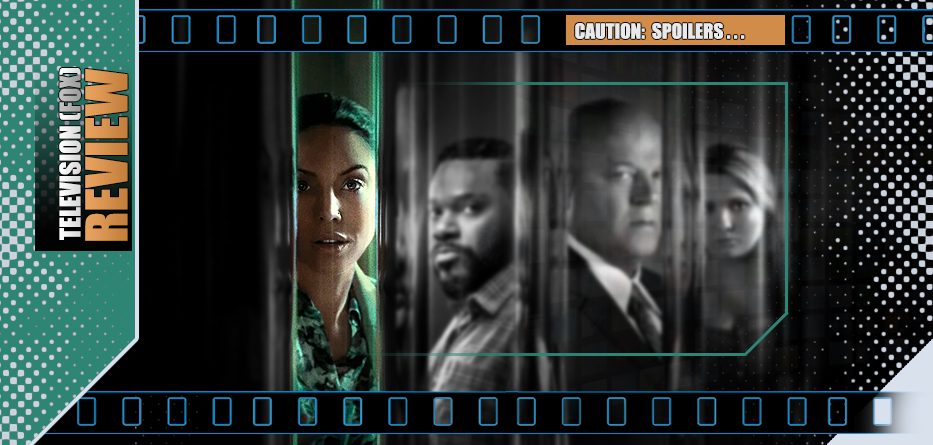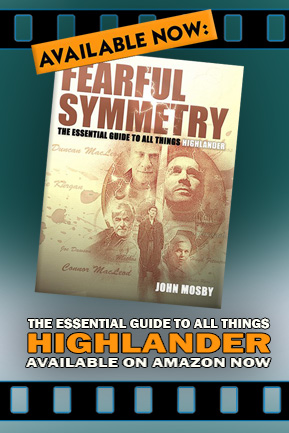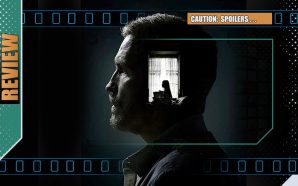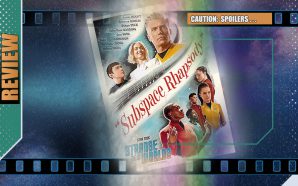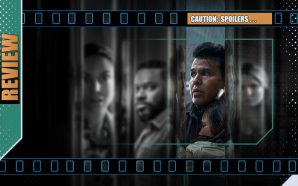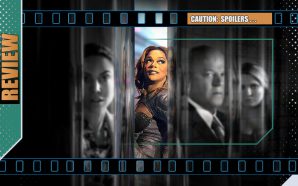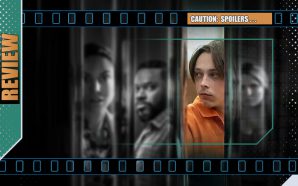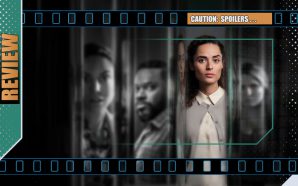Brenda is a successful comedy performer, making her name but still waiting for that big break. Invited to the launch party of Brian Tanner, an old stable-mate on the circuit who is about to embark a full-on stadium tour, she cautiously reconnects and asks whether she could be part of the tour. Viewing her material in a side-room of the party, he says he likes her latest routine and agrees it would be great for her to be involved. But when his flirtation turns into something far more sinister, Brenda is raped and left hurt, confused and angry. Initially she’s not sure what to do… Brian’s offer still stands and he’s acting as if it was all consensual. Some colleagues suggest that, unfortunately, these kinds of incidents aren’t rare and that she might ruin her big chance if she pursues a criminal complaint.
However, she decides she has no choice and makes it official and through no fault of her own, the news leaks and becomes a media story. Then another rape survivor, Tess, makes friends with Brenda and encourages her to keep making herself heard. But with charges against Brian looking less and less likely, it looks like someone is going to make sure Brian pays…
And now Brenda is in court for what happened next…
*spoilers*
Once again, Accused proves to be a provocative series looking at perceptions… as it tackles the subject of rape and how the perceptions of both victim and perpetrator are viewed by those outside the event and in the wider media. On one hand, as always, it raises legitimate questions about the way that different people or demographics are treated differently, the advice they receive and how their treatment can fundamentally change even (or especially) on what is supposed to be a level playing-field. On the other hand each chapter also has an undeniable remit for under/representation… whether the end result is an innocent or guilty verdict, in almost every case we are prompted to sympathise with the person on the stand or at least understand the reasons for their ‘crime’ and judge them (and perhaps ourselves) accordingly.
There’s a lot of good performances here. In particular, actor and comic Whitney Cummings has all the skills needed to play a central character used to using humour as both stagecraft and a way of coping with the world. There are plenty of difficult scenes to play and she gets the balance right, making Brenda a character that we sympathise with while also recognising that she has a complex, acerbic and forthright personality that can sometimes be taken the wrong way. She has plenty of people who care about her, but whose advice is not always what she needs or wants to hear. Mary Lynn Rajskub, who is probably best known for the role of Chloe on another Howard Gordon-produced show 24, gives us a character, Tess, who comes into Brenda’s world as a support mechanism. It seems, initially, that she’s a rape survivor giving Brenda good ‘don’t let this person get away with it‘ advice based on her own experiences, but who sets off viewer alarm bells when her reactions grow steadily more reactionary and militant. We find out later that it’s Tess’ actions – throwing lighter fluid and a match on Sean Kleier’s Brian Tanner – that has sent the case swerving into a media-frenzy and that Brenda’s trial is the result of Tess acting on a flippant remark Brenda had made about setting him on fire.
That’s a procedural niggle. While the situation might well have seen Brenda involved in legal events and judged in extremes of different public opinion, it seems highly unlikely that Brenda would or could be found legally culpable for the attack unless it was seen as deliberate malice aforethought and we know that isn’t even what has been suggested in the court, only that Brenda’s comments may have been the ‘inspiration’. That would be almost impossible to prove even if it had been the case.
In taking Accused‘s representational formula, it’s possible that Brenda’s Story – well-acted and certainly with a sadly topical story to tell – ironically misses an important opportunity to dissect opinion and perception even more sharply… simply by giving us too clear a view of events so it can make other salient points instead. Think for a second how the episode might have felt and had even more innate power to question our perceptions if we didn’t have that moral, third-person safety blanket…that we didn’t see the details of the event first-hand and had to judge that encounter solely on the aftermath and how characters’ lives were described or represented by others. That’s how most bad situations work in reality and why the process of reporting rape – and investigating it – becomes so harrowing and full of legitimate problems for people trying to do the right thing. Brenda’s Story concerns itself only with highlighting varying levels of hypocrisy and inadequacies (and that’s a perfectly reasonable remit) yet ultimately lets the audience itself off the hook – removing the clashing claims and ambiguity that the drama is supposed to be discussing and gives us a less uncomfortable baseline to escape the real cutting edge of it all.
Listen, as a middle-aged white guy I appreciate I’m either not the target audience or perhaps I’m specifically the target-audience depending on where my opinion is presumed to lie in advance. I can’t possibly imagine what it’s liked to be raped or to commit a rape, but in my time I have known people who have been the victim of rape, known people who have been wrongly accused of rape and experienced the minefield of the dating scene over several decades that should create a retrospective cold shudder in anyone. So, while I accept I’ve generally been a decent if not perfect guy, I’m also aware that for the sake of its message this drama went the easy route in giving us a horrible, entitled and predatory guy to hate from the outset. Though the authorities (and some colleagues) doubt her version of events, we absolutely know that Brenda was raped – the scene was disturbing, not remotely ambiguous and her rapist and ex-colleague are presented as a scummy individual worthy of our scorn. Rape is indeed diabolical, a horrendous crime of power-abuse as much as sexual-abuse. Even if some decisions she subsequently makes are wise or advisable, we’re now firmly in her corner and being shown how difficult being in her position really is.
Brenda’s Story raises lots of sadly topical and pertinent observations about yet more cracks in the justice system that face women. It contains plenty of food for thought and fuel for watercooler discussions – it’s just a shame that the show missed an opportunity to put the audience itself in the jury-box. Instead, it settles for the message ‘Rape is bad, but setting people on fire isn’t the answer…‘ which isn’t quite the nuanced overview or verdict it could have been.
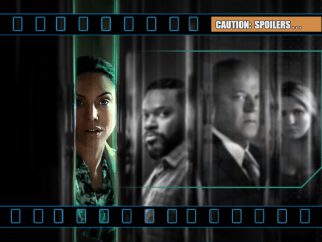
- Story8
- Acting8
- Direction8

